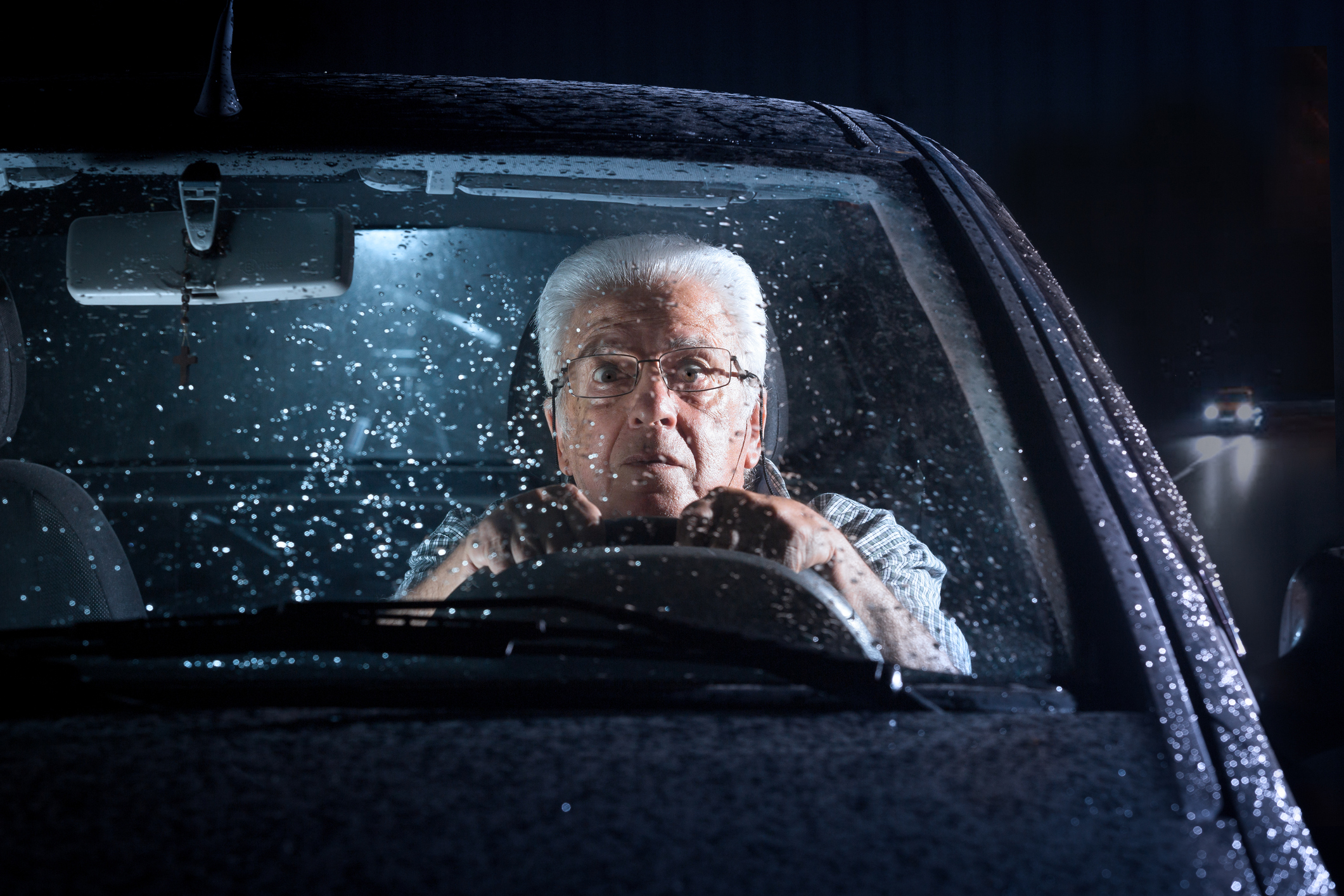With fewer daylight hours as winter approaches, nighttime driving can seem unavoidable but many older adults find driving at night with the glare and haloing effect of oncoming cars, especially those with bright LED lights, can be unsettling, even dangerous. But do night driving glasses, designed to reduce the amount of light entering the eye help older drivers? The American Academy of Ophthalmology warns that tinted or polarizing lenses used at night can hinder the eye’s ability to see in darker conditions.
According to the AAO’s Eye Health Tips and Prevention page, drivers having trouble seeing at night should first take basic steps to reduce glare and improve vision.
Tips to Improve Night Vision
- The car’s windshield should be cleaned inside and out to remove smudges that can reflect light or impair sight.
- The windshield wipers should be in good condition and replaced as needed.
- Headlights should be cleaned off regularly, grime and dirt from the road can build up.
- Drivers who wear glasses should make sure the prescription is current and lenses are clean.
If these steps don’t improve night vision, it’s a good idea to make an appointment with your ophthalmologist to make sure other causes such as cataracts, glaucoma or dry eye are ruled out. Adults over the age of 40 should get regular eye exams to protect healthy vision.
Diminishing night vision is one of the most common problems adults over the age of 40 face as changes in the eye make seeing in low light more difficult. The iris, which is controlled by tiny muscle in the eye, shrinks in size as aging muscles weaken. When less light enters the eye, night vision is impaired. These same muscles cannot react as quickly to changes in light so it takes longer for vision to adjust for older adults.
Other changes in the eye common in older age include cloudier and stiffer lenses of the eye which can result in blurry vision, problems with glare and poor night vision. The retina is also affected by aging and studies have found older adults have fewer rods, the sensitive photoreceptors crucial for clear night vision.
In addition to getting regular check-ups, older adults should maintain a healthy diet rich in fruits and vegetables and low in saturated fats which can harm eyesight as well as heart health. And if night vision is an ongoing concern, try to plan outings during the day, especially in unfamiliar surroundings.
Learn more about night driving and managing glare by following this link AAA’s SeniorDriving website.






Add Your Voice
0 Comments
Join the Discussion